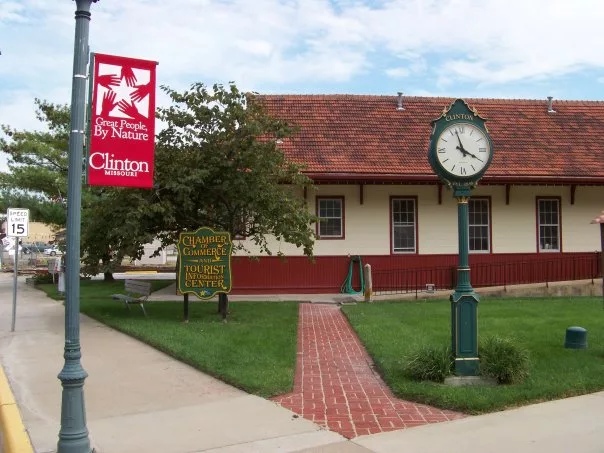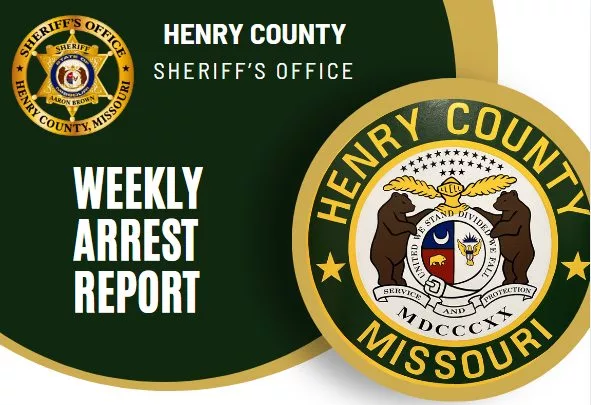
Each year, most bills passed during the Missouri Legislature’s regular session become law on August 28. Today is no exception.
State lawmakers passed 39 bills during the first regular session of the 103rd General Assembly. Of those, 16 were spending bills and 23 were policy bills.
Unlike the political rollercoaster rides during the 2022-2024 legislative sessions, lawmakers hunkered down this year for the most part and accomplished several priorities.
Here’s a summary of the top 20 key bills that become law today:
Paid sick leave requirements to end
HB 567 will overturn the mandated one hour of paid sick leave for every 30 hours worked. The requirements are part of Proposition A, which nearly 58% of Missouri voters approved last November.
State Rep. Sherri Gallick, R-Belton, sponsored the bill to repeal the mandate. Her bill will preserve Proposition A’s $15-an-hour minimum wage increase, which is set to begin in 2026. However, it scraps the automatic annual wage increase based on the consumer price index, effectively freezing Missouri’s minimum wage at $15 an hour. It would only increase if the federal minimum wage ever exceeds $15 an hour.
School cell phone ban
SB 68 is a comprehensive school safety law. Perhaps the most talked about component of the law involves banning students from using their cellphones during school hours, including mealtimes, time between classes, and study halls. There are a few exceptions, including for students who need a cellphone due to specific educational or health needs.
The package, sponsored by State Sen. Mike Henderson, R-Desloge, also contains requirements for schools to have response plans for armed intruders, natural disasters, and medical emergencies. It would require schools to have doors with anti-intruder locks and bullet-resistant window film in new construction by 2029 – if the state provides the funding.
Tax cut package
HB 594 is a wide-ranging tax cut plan to eliminate the state tax on capital gains, which involves profits on the sale of things like investments and real estate. The package, sponsored by House Speaker Pro Tem Chad Perkins, R-Bowling Green, would erase the 4.7% state tax on the sale of real estate and agricultural property.
A longtime pursuit that made it in the law increases the property tax credit and income limits for low-income seniors and people with disabilities who qualify for the “Circuit Breaker” program. The package also tosses out the state sales and local use taxes on diapers and feminine hygiene products.
Child welfare law
HB 737 is a wide-ranging child welfare law with two key components that ban child marriage and void nondisclosure agreements in childhood sexual abuse cases. The plan makes it illegal for anyone under 18 years old to marry, instead of previous law allowing 16- and 17-year-olds to get married to anyone under 21, if a parent approves.
Another noteworthy section of the measure blocks the state from seizing foster children’s benefits to help pay for their care. Missouri previously seized benefits, such as Social Security, VA, and pension funds, from foster children whose parents have died. The law will only allow the state to use those benefits for “unmet needs” beyond what the state is obligated or agrees to cover, such as tuition and tutoring.
Health care option for Missouri farmers
After three years of attempts, the Missouri Farm Bureau will be able to offer health plans to its members. SB 79 allows for coverage outside of the usual employer-based model. The state’s largest farmer organization can sell plans that would not have to abide by Affordable Care Act protections.
The legislation, sponsored by State Sen. Kurtis Gregory, R-Marshall, also expands online healthcare to include the delivery of healthcare services through audiovisual and audio-only options.
Free college for emergency responders
SB 71 will cover up to the full cost of in-state college tuition and fees for emergency responders seeking certain majors. The law is for police officers, firefighters, paramedics, 911 operators, and emergency medical technicians who are seeking their first license, associate, or bachelor’s degree.
It will be for emergency responders with at least six years of service and their dependent children will be covered after at least 10 years of service.
The law, sponsored by State Sen. David Gregory, R-St. Louis County, also includes a provision to boost the amount of money the state gives families if an officer is killed in the line of duty. That previous amount of $25,000 will now be $100,000 – and will be annually adjusted for inflation.
Missouri adults receiving Medicaid can get their hearing devices covered
Nationwide, 37 states provide coverage to all low-income adults receiving Medicaid who need hearing aids or cochlear implants. Today, that number changes to 38.
State Rep. Cameron Parker, R-Campbell, sponsored provisions included in SB 79 to expand coverage beyond low-income children, pregnant women, and the visually impaired. She expects the new law could help about 15,000 Missouri adults who are deaf or hard of hearing.
Service fees at license offices to increase
SB 3: On the final day of the legislative session, the General Assembly passed a bill to increase some service fees at license offices. They have not had fee increases since 2019 and inflation has gobbled up their overhead and profits.
The fee hike is meant to keep these offices open, as well as recruit and retain workers. The law, sponsored by State Rep. Dave Hinman, R-O’Fallon, and State Sen. Sandy Crawford, R-Buffaloe, will boost the fee by $3 for learner’s permits, driver’s licenses, lien notices, vehicle registrations, renewals, and title transfers.
Education workforce law
SB 150 has several pieces that aim to boost Missouri’s workforce, including the creation of a program to help fill job vacancies in various trade skills. State Rep. Ann Kelley, R-Lamar, sponsored the law that will create a Career-Tech Certificate program to cover the cost of books, tuition, and fees for eligible students at community colleges, tech schools, and industry-approved training programs.
It also makes it easier to transfer credits for core degree programs between Missouri’s public colleges and universities. Another component increases awards offered through the Access Missouri Financial Assistance Program and creates a STEM college grant of up to $6,000 per student.
In addition, the Department of Elementary and Secondary Education will be able to issue temporary childcare center licenses to providers to expand an existing site or to add a new location. This could help Missouri address its critical need to expand access to safe, affordable, and quality childcare.
Oxygen therapy for military veterans with combat-related injuries
Some Missouri military veterans use a therapy in which they breathe pure oxygen to help heal damaged tissue in the brain. Hyperbaric oxygen therapy involves a pressurized chamber that could help veterans suffering from post-traumatic stress disorder or traumatic brain injuries. The bill sponsor, State Rep. Chris Brown, R-Kansas City, said HB 262 creates a fund to help cover the costs of the therapy for veterans.
The therapy has been around for many years to treat athletes, sick scuba divers, and people with carbon monoxide poisoning, for example.
Restrictions lowered for homeschooled athletes
After several years of legislative attempts, SB 63 will allow Missouri homeschooled students to participate in extracurricular activities at the school district they live in. State Sen. Ben Brown, R-Washington, said his bill allows homeschooled students the right to try out for an activity, but they still have to make the team, for instance.
The same school transfer rules and grade requirements that apply to traditional public school students to participate in activities still apply to homeschoolers. Their academic eligibility is determined by whoever is responsible for teaching them.
Gold and silver payments
HB 754 recognizes gold and silver as legal currency in Missouri. That means they can now be used to pay for everyday transactions, such as groceries and fuel. Under the new law, sponsored by State Rep. Philip Oehlerking, R-Ballwin, Missouri businesses can accept the precious metals as payment, but they are not required to. The law does require state government to accept electronic versions of gold and silver as forms of payment for taxes and public debts.
Expanded rights for landlords
HB 595 limits public assistance for renters in Missouri. It bans cities from requiring landlords to accept federal housing vouchers – known as Section 8 vouchers – as payment from their tenants instead of money. State Rep. Chris Brown, R-Kansas City, sponsored the bill.
Changes to setting utility rates
SB 4 will change the way in which utility rates are set. The law, sponsored by State Sen. Mike Cierpiot, R-Lee’s Summit, will give utility companies the authority to use a so-called “future test year” model for setting rates based on projected costs. It will also let private electric companies regulated by the Missouri Public Service Commission seek rate increases for construction work in progress on new natural gas-generating plants.
Other provisions require Missouri utility companies to wait 72 hours before disconnecting a customer’s service for nonpayment when the temperature is expected to fall below 32 degrees or soar above 95 degrees.
Hazing preventions
SB 160 is a law that is designed to prevent hazing on college campuses. ‘Danny’s Law’ is named after former University of Missouri-Columbia student Danny Santulli, who suffered permanent brain damage while forced to binge drink during a fraternity party in 2021.
The law, sponsored by State Sen. Brad Hudson, R-Cape Fair, defines hazing as “knowingly, actively, and not under duress” forcing someone to engage in activities that could be harmful or fatal. It also shields people from being convicted of hazing if they were the first person to call 911 or campus security, provided information, and stayed on the scene until first responders arrived.
State expansion of baby safe haven drop-off sites
HB 121 aims to help Missouri add more rescue sites for parents to anonymously drop-off their newborns. The law creates a state matching fund to put more of these temperature-controlled cradles at designated drop-off sites, such as Missouri fire stations. They have a bassinet inside and immediately notify emergency responders when a baby has been placed in it.
The new Missouri law increases the age in which babies can be surrendered at designated drop-off locations without the fear of the parents being prosecuted. Under the bill, sponsored by State Rep. Jim Murphy, R-St. Louis County, it changes the surrendered baby age limit from the previous 45 to 90 days.
The law also creates a fund to help pay for adoption expenses, post-adoption needs, promoting adoption, and intervention measures to keep children out of foster care.
Water export restrictions
SB 82 bans the export of Missouri’s water outside the state without a permit. That permit must be issued by the Missouri Department of Natural Resources. The law also bars anyone from withdrawing water to export through a pipeline unless the withdrawal and end use of the water from the site is within 30 miles of a Missouri border.
State Sen. Jamie Burger, R-Benton, sponsored the bill and State Rep. Cameron Parker, R-Campbell, co-sponsored it.
Lower tax on American-made beer
The American Beer Act reduces Missouri’s malt liquor tax from $1.86 a barrel to $0.62 a barrel for beer made at American breweries. HB 1041, sponsored by State Rep. Dane Diehl, R-Butler, still charges $1.86 per barrel for malt liquor made outside of the U.S.
But overseas beer producers that use breweries in the U.S. are eligible for the tax break. For example, Irish beer company Guiness also brews its product in Chicago and Baltimore.
Another piece of the law allows manufacturers, retailers, and unlicensed individuals in Missouri to donate wine, beer, and spirits to charitable, religious, and educational groups for auctions or raffles.
Cotton trailers can legally cruise at a higher speed
Yesterday, Missouri’s speed limit to haul cotton was 45 miles per hour. Today, farmers are allowed to drive their cotton trailers up to 70 miles per hour in Missouri. State Sen. Jason Bean, R-Holcomb, sponsored SB 28, which becomes law just in time for Missouri’s cotton harvest. The law also ends a requirement for cotton trailers to be used exclusively for hauling cotton.
Sale of 6 invasive plants banned by 2029
SB 105 will gradually phase out the sale of six invasive plant species in Missouri – Callery pear trees, burning bush, Japanese honeysuckle, wintercreeper, sericea lespedeza, and Perilla mint.
The main purpose of the law, sponsored by State Sen. Mike Bernskoetter, R-Jefferson City, is to improve land management in Missouri.
Gradually phasing in the bans will ease the financial burden on nursery owners as they look for other plants to replace them. Japanese honeysuckle, sericea lespedeza, Perilla mint, and wintercreeper will be banned in 2027. Callery pear trees and burning bush will be banned in Missouri in 2029.
From MissouriNet.com










